Coaching FAQ: Your Questions Answered
General Coaching & Weight Management
What does a weight management coach do?
A weight management coach helps clients set and achieve realistic health and weight goals. They provide personalized guidance, accountability, and strategies for building sustainable habits related to nutrition, exercise, and behavior.
How can coaching help me lose weight sustainably?
Coaching focuses on long-term behavior change instead of quick fixes. By building better habits around food, movement, and mindset, you gradually create a healthier lifestyle that supports lasting results.
Is one-on-one coaching more effective than group programs?
It depends on your learning style and needs. One-on-one coaching is tailored specifically to you, offering personalized attention and deeper support, while group programs offer community and shared motivation.
How long does it usually take to see results with a coach?
Most clients begin seeing measurable changes in energy, habits, and mindset within a few weeks. Significant weight or body composition changes typically take 8-12 weeks or longer, depending on consistency and goals.
What's the difference between a coach and a dietitian?
A coach provides practical habit-building strategies, accountability, and lifestyle support. A registered dietitian has clinical training to treat medical conditions and create medical nutrition therapy plans.
How often should I meet with my coach?
Most coaching programs involve weekly or biweekly check-ins. Frequency may vary depending on your needs and how much accountability and support you prefer.
Can I get results without counting calories?
Yes. Many coaching programs focus on portion control, food quality, and mindful eating instead of calorie tracking, which can feel restrictive or overwhelming for some people.
Will I be given a meal plan, or just general guidance?
This depends on the coach. Some provide meal ideas or flexible frameworks; others offer full meal plans. Most aim to teach you how to build balanced meals on your own.
What if I've tried everything and nothing has worked?
A coach can help you identify what's truly been holding you back. Often it's not the strategy, but lack of structure, support, or consistency that prevents lasting change.
Do coaching programs help with emotional or binge eating?
Yes. Many coaches are trained to help you understand and manage emotional triggers, build mindful eating skills, and develop alternative coping mechanisms.
Nutrition & Eating Habits
Do I need to stop eating carbs to lose weight?
No. Carbs are an essential energy source. Weight loss comes from creating a calorie deficit, not eliminating entire food groups. Quality and portion size matter more than complete restriction.
Is it better to eat three large meals or several small ones?
Either can work depending on your lifestyle. The most important factor is consistency and choosing a pattern that helps manage hunger and energy levels throughout the day.
How can I manage cravings during the day?
Cravings often result from under-eating or emotional triggers. Eating balanced meals regularly and staying hydrated can reduce them. Mindfulness and identifying emotional patterns also help.
Are cheat meals helpful or harmful?
They can be part of a balanced approach when used mindfully. Labeling meals as "cheats" can create guilt. Instead, plan for flexibility and enjoy all foods in moderation.
Do I have to give up my favorite foods?
No. Sustainable plans include your favorite foods in appropriate portions. Total restriction often leads to rebound eating.
What role does protein play in weight loss?
Protein supports muscle maintenance, keeps you full longer, and boosts metabolism slightly through digestion. Including a protein source in every meal can help regulate appetite.
Can plant-based diets work for fat loss?
Yes. Plant-based diets can be nutrient-dense and lower in calories. Prioritizing whole foods, protein sources, and portion control is key.
How can I balance eating out with my nutrition goals?
Scan menus ahead of time, look for grilled or baked options, ask for sauces on the side, and stop eating when full. Eating out doesn't have to derail progress.
What are the risks of cutting calories too low?
Too few calories can lead to fatigue, nutrient deficiencies, muscle loss, and slowed metabolism. It can also cause binge eating or disordered patterns.
Should I take supplements like protein powder?
Only if you're not meeting your protein needs through whole foods. Supplements are tools, not necessities.
Fitness & Activity
Do I need to exercise to lose weight?
While weight loss is mainly driven by nutrition, exercise supports fat loss, muscle retention, and overall health. It also improves mood, energy, and motivation.
What type of workouts work best for fat loss?
A mix of strength training and cardio is ideal. Strength helps preserve muscle mass, and cardio supports calorie burn and heart health.
Can walking every day be enough?
For many people, yes. Regular walking boosts calorie burn, improves cardiovascular health, and supports mental well-being. Pairing it with good nutrition can lead to results.
How do I get back on track after missing workouts?
Start small and get back into a routine without guilt. One missed day doesn't undo progress. Consistency over time is what matters.
I'm new to exercise—where should I start?
Begin with low-impact activities like walking, bodyweight workouts, or beginner classes. Focus on building the habit and learning good form.
Mindset, Lifestyle & Results
What if I lose motivation halfway through the program?
This is common. A coach can help you reconnect with your goals, adjust your plan, and stay accountable when motivation dips.
How do I stay consistent when life gets busy?
Prioritize simple, non-negotiable habits. Even 10 minutes of intentional action daily adds up. Planning ahead and staying flexible is key.
Will this approach help me keep the weight off long term?
Yes. Coaching focuses on building habits you can maintain, not just short-term fixes. The goal is sustainable change, not rapid weight loss.
How is progress measured beyond the scale?
Non-scale victories include energy levels, sleep, mood, digestion, strength, clothes fitting better, and improved confidence.
What's the biggest mistake people make when trying to lose weight?
Trying to change everything at once or being too restrictive. Small, consistent changes are more effective and sustainable than extreme overhauls.
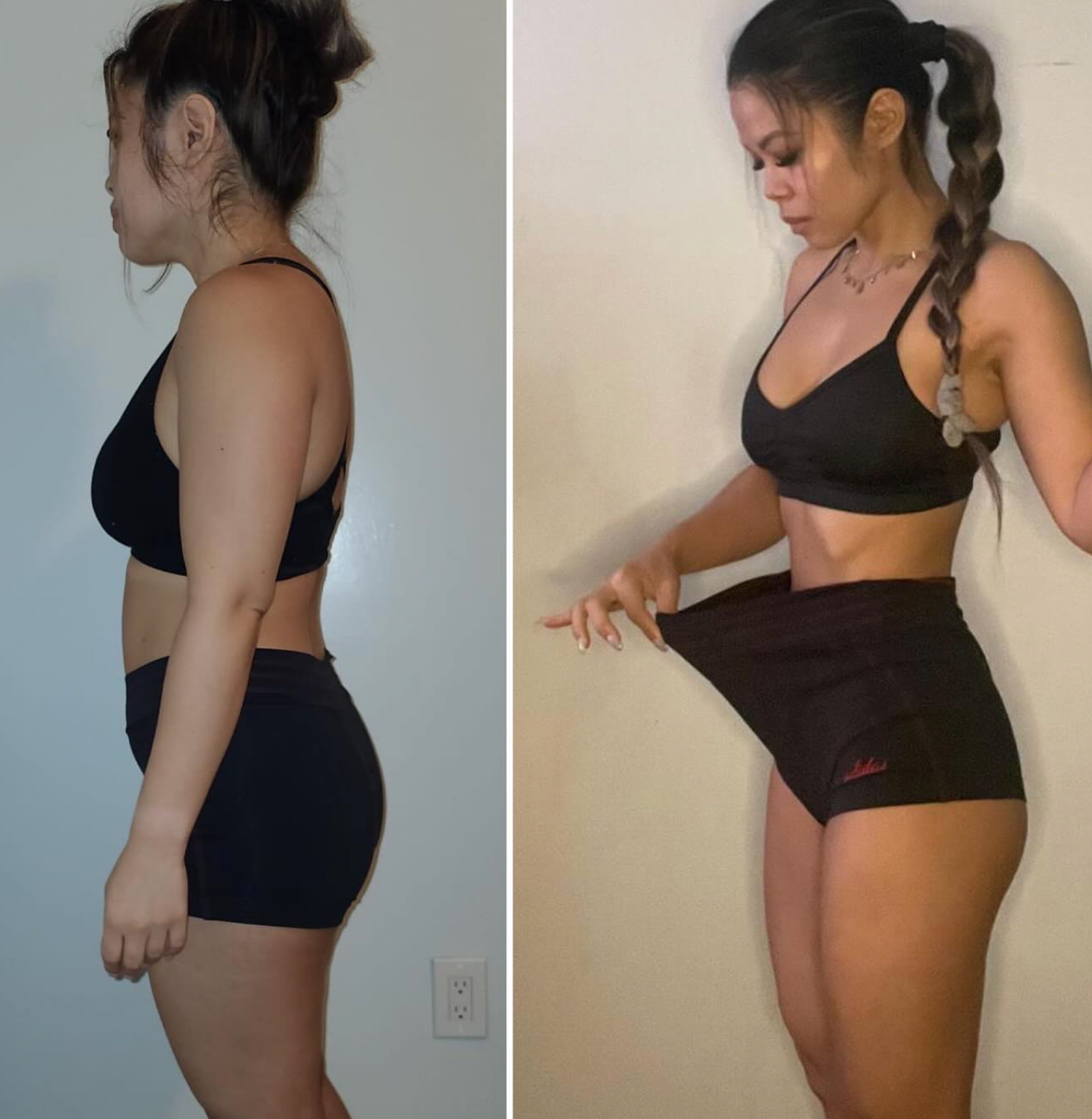
Shay
Shay first came to me for personal training, thinking that working out alone would help her reach her goals. We trained consistently, but it became clear that without a structured meal plan to support her workouts, progress was limited. After some discussion, Shay agreed to try online coaching alongside her in-person sessions to bring everything into alignment—training, nutrition, and accountability.
At the start of her journey in March 2024, Shay weighed 140 lbs (64 kg). With the added support of personalized online coaching and nutritional guidance, she steadily progressed over the following months. By early September 2024, she had reached an incredible 114 lbs (52 kg), losing a total of 26 lbs in about six months.
Shay was a joy to coach—disciplined, consistent, and fully committed to the plan. She rarely missed a cardio session and followed her nutrition program with honesty and focus. Her transformation is a testament to what happens when structured training meets a clear plan and dedicated effort. She not only reached her goal but went beyond it.
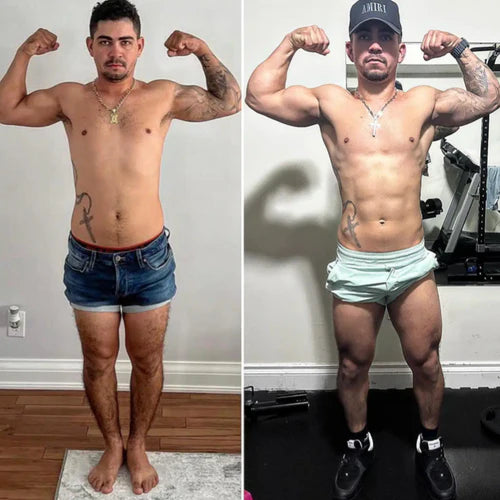
Junior Botelho
I've been training with Tally for almost two years, and I can honestly say only good things. What stands out most is that it's never been about money—his focus has always been on his clients and helping them grow. He genuinely cares about your progress, and that shows in every session.
If you're looking for someone who will guide your workouts, help you with your diet, and stay committed to your success, Tally’s 8-session personal training package is exactly what you need. I 100% recommend him! He’s the only trainer I trust to deliver real results—and to do it fast.
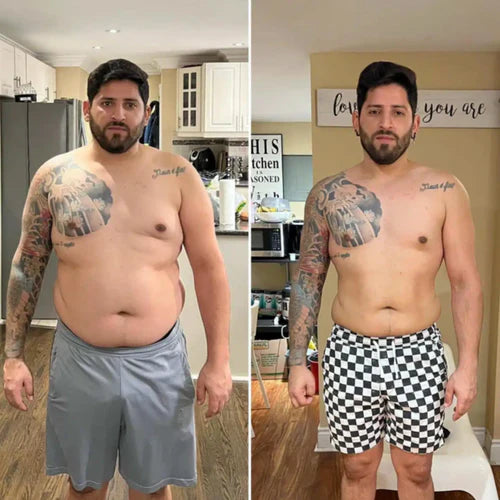
Artur Bayma
Eu fiz o acompanhamento com Tallyson durante 3 meses através do Programa de Treinamento Online de 3 Meses e tive um resultado de menos 20kg, além de um ganho de massa exorbitante. Quando comecei com ele, percebi que mudar o nosso corpo não é apenas fechar a boca e passar fome. Ele realmente me ensinou que não precisamos sofrer para ter resultado.
Tallyson é um profissional que leva seu trabalho a sério, a ponto de responder dúvidas sobre alimentação ou treino na mesma hora, mesmo estando ocupado. Agradeço muito por ter te conhecido — você é um excelente profissional!
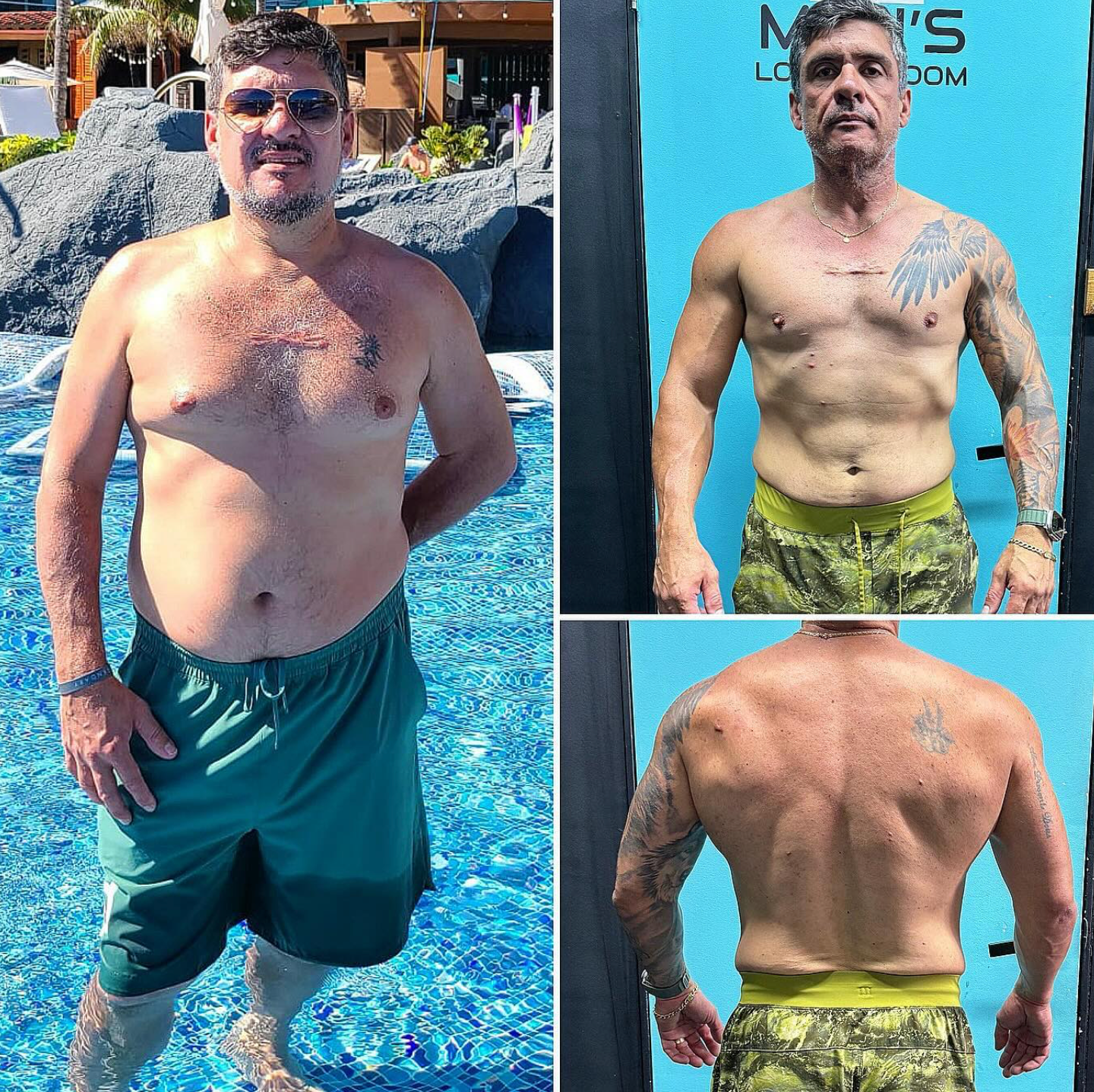
Juliano Sanches
When Juliano came to me, he had already lost a considerable amount of weight—starting at 185 lbs (84 kg)—but he felt stuck and wasn’t sure what to do next to keep progressing. Through word of mouth from friends who were also clients, he reached out for help.
At the time, he was doing too much cardio and very little weight training. I built him a structured plan through the 12-session personal training program, focusing on weight training five times per week while easing off the cardio, especially since he was already physically active through his job in construction. His nutrition lacked structure, and he had a few habits like drinking alcohol regularly—which we chose not to eliminate right away to keep him motivated while easing into new habits gradually.
Eventually, Juliano cut out alcohol on his own, stayed fully committed to his training, and never missed a session. Over the following months, he dropped another 5 kg (down to 176 lbs / 80 kg) and gained noticeable muscle in the process. Now that we’ve leaned him out, we’re shifting the focus toward building muscle as the next goal.
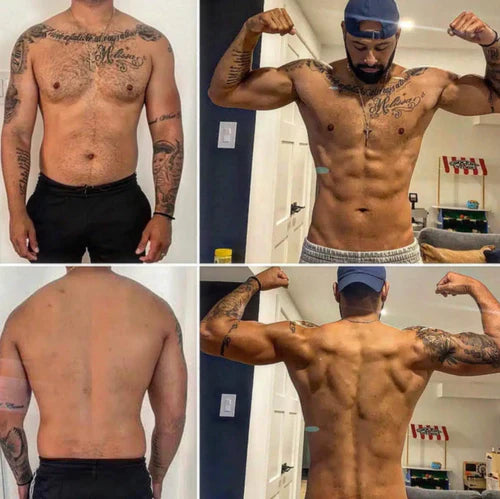
Jose Paulino
My experience and time with Coach Tally has been great and truly surpassed my expectations. I’ve lost over 25 pounds so far and couldn’t be happier with my results. Through the 12-session personal training program, he provided me with the right tools, structure, and knowledge to succeed in my fitness journey. If you’re serious about reaching your fitness goals, Tally is the guy you want in your corner.
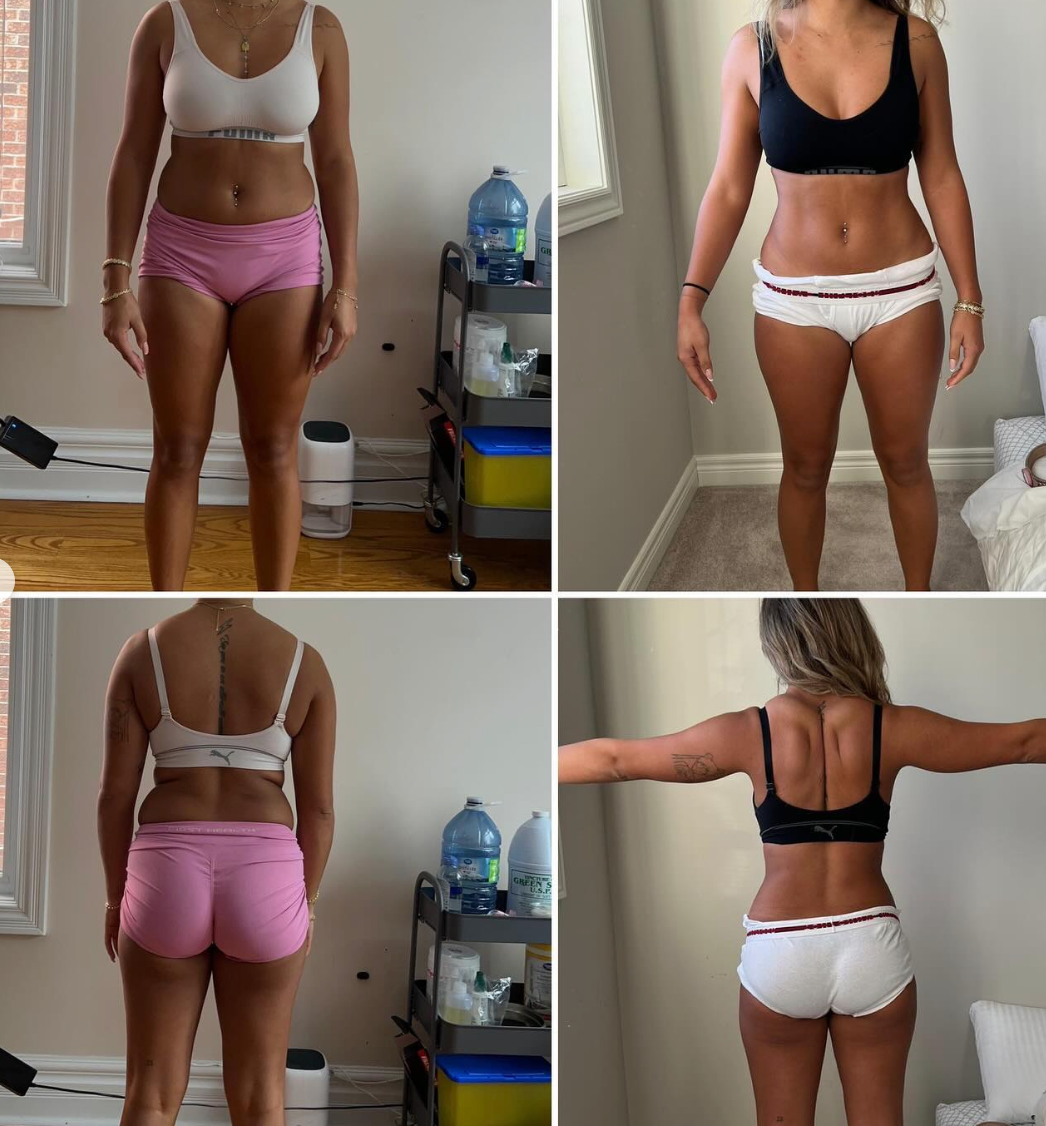
Rebecca Neves
This is what a little cardio, proper weight training, and smart nutrition can do in just a short time. She signed up for the 8-session personal training program with one goal—be ready for Carnaval—and she made it happen. With focus, consistency, and the right plan, she didn’t just prepare for the event—she showed up feeling confident and strong.
